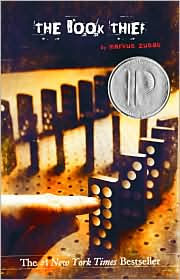 Before thirteen year old Brian Robeson embarks on a plane trip across the rugged wilds of North Canada to spend the summer with his father, his mother gives him a hatchet as a parting gift. Brian thinks little of it when he hastily clips the hatchet onto his belt, but a few hours later, after his pilot dies and the plane crashes hundreds of miles off course, the hatchet is the only possession that Brian has. Brian quickly learns that the only way he'll stay alive in the rugged wilderness is to learn to use his hatchet...and his wits.
Before thirteen year old Brian Robeson embarks on a plane trip across the rugged wilds of North Canada to spend the summer with his father, his mother gives him a hatchet as a parting gift. Brian thinks little of it when he hastily clips the hatchet onto his belt, but a few hours later, after his pilot dies and the plane crashes hundreds of miles off course, the hatchet is the only possession that Brian has. Brian quickly learns that the only way he'll stay alive in the rugged wilderness is to learn to use his hatchet...and his wits. My dear friend Bev loves Gary Paulsen novels and she recommended Hatchet to me. (Thanks again, Bev!) As I have mentioned on here before, I adore a good survival story, and the Newberry Prize-winning Hatchet is no exception. A good survival novel has to have an appropriate level of suspense and action, and Hatchet certainly delivers on that count. Between the terrifying plane crash, Brian's pitiful early attempts to stay alive, and his unnerving encounter with an angry moose, I couldn't put this book down. Author Paulsen is an avid outdoorsman (He's even competed several times in Alaska's grueling Iditarod dog race); consequently, he infuses much of his knowledge of the wilderness into this book, adding an authentic feel that many other survival novels lack. I also enjoyed Paulsen's prose. He writes with a blunt, pared-down style, and his prose has a naturalistic, conversational tone which, oddly enough, reminded me some of The Catcher in the Rye. (That's a weird comparison, but it kept coming back to me as I read.) Paulsen also effectively uses repetition in his narration, giving the text an almost lyrical narrative poetry sound.
The biggest strength of this novel, though, is Brian. He is so easy to sympathize with. Of course, it's hard not to be sympathetic to his plight, but he is also a genuinely likable character. He lacks the angsty, whiny attitude that so many teenaged protagonists have (and which I find to be a distasteful turnoff.) Brian is also a realistic teenaged character who is easy to relate to. He's levelheaded and intelligent, but he's also no superhuman: he's vulnerable; he makes mistakes. His ordinary qualities make him all the more appealing.
Hatchet is a young adult novel which will delight readers of all ages. This novel is well-written, engaging, and exciting - the perfect antidote to a dreary winter day. Erm, dare I say this without being too corny? You'll enjoy getting lost with Hatchet.
~
Next Time: For my first article of 2010, I will finally post my long-promised article on online book resources. I promised waaaaay back in September to add links to my blog. (You thought I forgot. Admit it.)) This article will serve as a tour guide, if you will, of my additions. I'll include some of my favorite internet sources for books and book recommendations (you guys have to promise you won't desert me for polished reviewers who do not ramble incessantly!), genre-specific websites, and online recommendations lists. If, and this if is highly contingent on my notoriously inept techno abilities, I can get them to load, I will also have links to prominent annual book awards and the New York Times' bestseller lists.








 I still remember my first encounter with the Bard. I was a tender seventh grader staring down Othello. To be frank, I was expecting to be confused and bored out of my mind, but once I figured out what was going on, I fell in love with Shakespeare and became quite addicted to his dramatic plots, epic language, and remarkable characters.
I still remember my first encounter with the Bard. I was a tender seventh grader staring down Othello. To be frank, I was expecting to be confused and bored out of my mind, but once I figured out what was going on, I fell in love with Shakespeare and became quite addicted to his dramatic plots, epic language, and remarkable characters.






